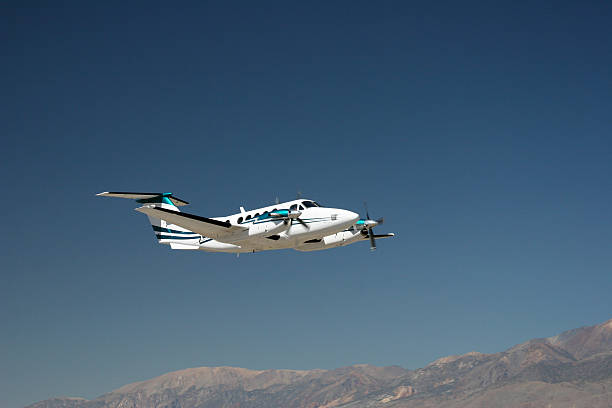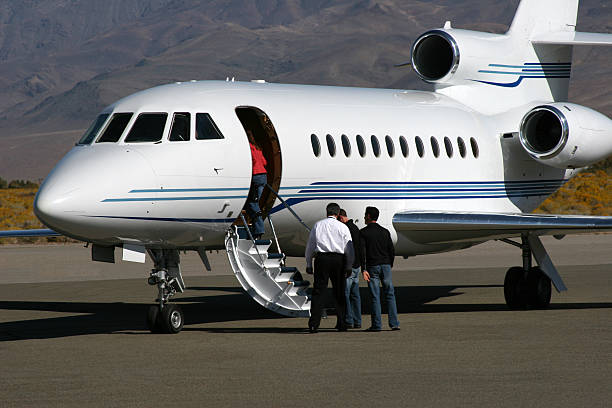Private Jet Concierge Service in Chicago: Essential Support for Medical Teams

When medical emergencies transcend geographical boundaries, time becomes the most critical factor in saving lives. Chicago's private jet concierge services have emerged as an indispensable resource for medical teams, offering expert coordination of rapid deployment capabilities that can mean the difference between life and death. This comprehensive guide explores how specialized aviation concierge services in the Windy City are revolutionizing medical transport coordination and emergency response support.
The Critical Role of Aviation Concierge Services in Medical Emergency Response
Medical emergencies don't follow schedules, and neither do the healthcare professionals who respond to them. Research indicates that 24 to 130 in-flight medical emergencies are estimated to occur per 1 million passengers, highlighting the ongoing need for specialized medical aviation support. In the United States, more than 550,000 people use air ambulances annually to get the care they need, demonstrating the critical importance of coordinated medical aviation services.
When ground transportation isn't feasible due to distance, terrain, or time constraints, private jet concierge services become the vital link connecting medical teams with FAA-certified aviation operators. Chicago, strategically positioned in the heart of America's transportation network, serves as a crucial coordination hub for medical aviation services through expert concierge support.
Understanding Private Jet Concierge Services for Medical Teams
Private jet concierge services for medical teams go far beyond simply arranging aircraft. These specialized services encompass a comprehensive suite of coordination and support mechanisms designed to facilitate rapid, safe, and efficient medical transport through partnerships with FAA-certified operators. Key components include:
Aircraft Selection and Operator Coordination
Medical missions require specific aircraft configurations that standard commercial flights cannot provide. Expert concierge services work with medical teams to coordinate with appropriate FAA-certified operators based on:
- Patient capacity and medical equipment requirements
- Range and speed specifications for mission-appropriate aircraft
- Cabin pressurization capabilities for altitude-sensitive patients
- Accessibility features for stretcher loading and medical device accommodation
Regulatory Compliance and Documentation Management
Medical flights often involve complex regulatory requirements, particularly for international missions. Professional concierge services coordinate:
- FAA medical flight certifications with certified operators
- International aviation permits and clearances
- Medical equipment transport documentation
- Customs and border protection coordination
Ground Support Network Coordination
Seamless ground operations are crucial for medical missions. This includes:
- Ambulance coordination at departure and arrival airports
- Medical facility communications and scheduling
- Fuel and maintenance coordination to minimize delays
- Weather monitoring and alternative route planning
Chicago's Advantage in Medical Aviation Coordination
Chicago's position as a major aviation hub provides several distinct advantages for medical jet concierge services:
Infrastructure Excellence
Chicago boasts world-class aviation infrastructure with multiple airports capable of handling private jet operations coordinated through professional concierge services:
- Chicago O'Hare International Airport (ORD): One of the world's busiest airports with 24/7 operations capability
- Chicago Midway International Airport (MDW): Centrally located with excellent ground access coordination
- Chicago Executive Airport (PWK): Dedicated to private aviation with specialized medical flight support
- DuPage Airport (DPA): Premium private jet facility with medical aviation capabilities
Central Geographic Location
From 2000 to 2018, there was a significant increase in the number of commercial airline passengers traveling globally, from 1.6 billion passengers in 2000 to 4.2 billion passengers in 2018, with the aviation industry contributing 2.7 trillion dollars and 3.6% of the world's gross domestic product in 2019. Chicago's central location enables medical teams to reach approximately 75% of the U.S. population within a four-hour flight radius, making this geographical advantage crucial for time-sensitive medical missions where every minute counts.
Weather and Operational Reliability
While Chicago weather can be challenging, the city's multiple airports and experienced aviation professionals maintain high operational reliability. Advanced weather monitoring systems and alternative routing capabilities ensure medical missions can proceed even under adverse conditions when coordinated through professional concierge services.
Specialized Medical Aviation Concierge Services in Chicago
Emergency Medical Services (EMS) Support Coordination
Chicago-based concierge services maintain close relationships with regional EMS systems and FAA-certified medical aviation operators, enabling rapid coordination of medical team deployment to disaster areas, remote locations, or specialized treatment facilities. These partnerships ensure seamless integration between ground and air medical services.
Organ Transport Coordination Support
Fixed-wing air ambulances can travel up to 2,700 miles, making them ideal for long-distance medical evacuations, allowing patients to be flown to hospitals far from the point of origin. Time-critical organ transport requires precise coordination, and Chicago's aviation concierge services excel in providing the coordination reliability and speed necessary for these life-saving missions through partnerships with certified operators.
International Medical Mission Coordination
Chicago serves as a departure coordination point for international medical missions, with concierge services handling the complex logistics of overseas medical transport coordination, including:
- International flight permits and clearances coordination
- Medical equipment customs documentation management
- Diplomatic clearances for government-sponsored missions
- Multi-country routing and fuel stop coordination
Technology Integration in Medical Aviation Concierge Services
Modern private jet concierge services leverage current technology to optimize medical mission coordination:
Real-Time Tracking and Communication
GPS tracking systems and satellite communications enable real-time coordination between medical teams, FAA-certified operators, ground support, and receiving facilities. This technology ensures all stakeholders remain informed throughout the mission.
Electronic Flight Planning Coordination
Advanced flight planning software considers medical mission-specific factors such as patient condition, required altitude limitations, and medical equipment power requirements to optimize flight routes and timing coordination with certified operators.
Integration with Medical Systems
Leading concierge services work to integrate with hospital management systems to streamline patient transfer processes and ensure continuity of care during transport coordination.
Cost Considerations and Value Proposition
While private jet services represent a significant investment, the value proposition for medical teams is compelling when considering professional concierge coordination:
Time Savings Through Expert Coordination
Commercial airline schedules rarely align with medical emergencies. Professional concierge services eliminate the complexity of coordinating multiple vendors, potentially saving hours or days in critical situations through streamlined communication with FAA-certified operators.
Mission Flexibility Coordination
Unlike commercial flights, coordinated private jet missions can modify routes, make unscheduled stops, and accommodate last-minute changes that are common in medical missions through expert concierge management.
Cost-Effectiveness for Group Travel
In 2017, the median price for a helicopter air ambulance ride was $36,400, while airplane air ambulances cost $40,600, excluding insurance coverage. When coordinating transport for entire medical teams with specialized equipment, private jets often prove more cost-effective than multiple commercial tickets plus equipment shipping costs.
Regulatory Environment and Safety Standards
Medical aviation operates under stringent regulatory oversight to ensure patient and crew safety:
FAA Part 135 Operations
Most medical charter flights operate under FAA Part 135 regulations, which mandate higher safety standards than Part 91 private operations. Professional concierge services ensure all coordinated operators meet these regulations covering pilot training, aircraft maintenance, and operational procedures.
Medical Equipment Certification Coordination
All medical equipment transported on private jets must meet FAA certification requirements and be properly secured for flight operations. Expert concierge services ensure compliance with these critical safety standards through coordination with certified operators.
Insurance and Liability Coverage
Comprehensive insurance coverage protects medical teams, patients, and service providers throughout the mission. Leading concierge services work with operators who maintain extensive liability coverage specifically designed for medical aviation operations.
Case Studies: Real-World Medical Mission Success Stories
Disaster Response Coordination
During major disaster responses, Chicago-based private jet concierge services have coordinated multiple medical evacuation flights through partnerships with FAA-certified operators, facilitating the transport of hundreds of patients from affected areas to treatment facilities across the Midwest. The rapid coordination capability and flexible operations enabled these life-saving missions when commercial aviation was severely disrupted.
Pediatric Specialty Care Transport Coordination
Chicago children's hospitals regularly utilize private jet concierge services to coordinate transport of pediatric specialists to rural areas where specialized care is unavailable. These coordinated missions have resulted in successful treatment of complex cases that would otherwise require lengthy ground transport or delayed care.
Choosing the Right Concierge Service
When selecting a private jet concierge service for medical missions, consider:
Experience with Medical Flight Coordination
Look for providers with specific experience in medical aviation coordination, including understanding of medical equipment requirements, patient care protocols, and regulatory compliance with FAA-certified operators.
Network of Certified Operators
Ensure the concierge service has established relationships with appropriate FAA-certified operators for various mission profiles, from small turboprops for short regional flights to large jets for international missions.
24/7 Operations Capability
Medical emergencies don't follow business hours. Choose concierge services that maintain round-the-clock operations with qualified staff available for immediate coordination with certified operators.
Comprehensive Ground Support Network
Comprehensive ground support coordination ensures seamless operations at departure and destination airports, including fuel, maintenance, and ground handling service coordination.
Future Trends in Medical Aviation Coordination
Emerging Electric and Hybrid Aircraft
Future electric and hybrid aircraft technologies promise quieter, more environmentally friendly medical transport options, particularly for short to medium-range missions. Professional concierge services are monitoring these developments for future coordination opportunities.
Advanced Life Support Integration Possibilities
Next-generation aircraft are being designed with integrated medical equipment and life support systems, essentially creating flying intensive care units. These innovations will require specialized coordination expertise as they become available.
Enhanced Telemedicine Connectivity
Future high-speed satellite internet capabilities may enable real-time telemedicine consultations during flight, allowing specialists to provide guidance throughout the transport process. Professional concierge services are preparing to coordinate these enhanced capabilities.
Conclusion
Chicago's private jet concierge services have established themselves as essential coordination partners in modern medical care delivery. By providing expert coordination of rapid, flexible, and reliable aviation solutions through partnerships with FAA-certified operators, these services enable medical teams to extend their reach far beyond traditional geographical boundaries.
As medical technology continues to advance and the demand for specialized care grows, the partnership between healthcare providers, professional aviation concierge services, and certified operators will only become more critical. Research shows there were 11,920 in-flight medical emergencies resulting in calls to medical centers (1 medical emergency per 604 flights), with physician passengers providing medical assistance in 48.1% of cases, and of 10,914 patients with follow-up data available, 25.8% were transported to a hospital by emergency medical services.
The investment in professional concierge coordination services pays dividends not just in operational efficiency, but in the lives saved through rapid medical response capabilities facilitated by expert coordination with certified aviation providers. For medical teams operating in today's interconnected world, Chicago's private aviation concierge resources represent a vital coordination tool in their mission to provide life-saving care wherever and whenever it's needed.
The future of medical aviation coordination in Chicago looks promising, with continued technological advancement, regulatory refinement, and growing recognition of professional concierge services' role in healthcare delivery coordination. Medical teams who embrace these coordination resources today position themselves at the forefront of tomorrow's healthcare delivery systems.
References:
- NBAA - National Business Aviation Association: https://nbaa.org
- Federal Aviation Administration: https://www.faa.gov
- United Network for Organ Sharing (UNOS): https://unos.org
- American Family Physician - In-flight Medical Emergencies: https://www.aafp.org/pubs/afp/issues/2021/0501/p547.html
- Aircraft Owners and Pilots Association (AOPA) - Medical Flight Operations: https://www.aopa.org/training-and-safety/active-pilots/safety-and-technique/operation














